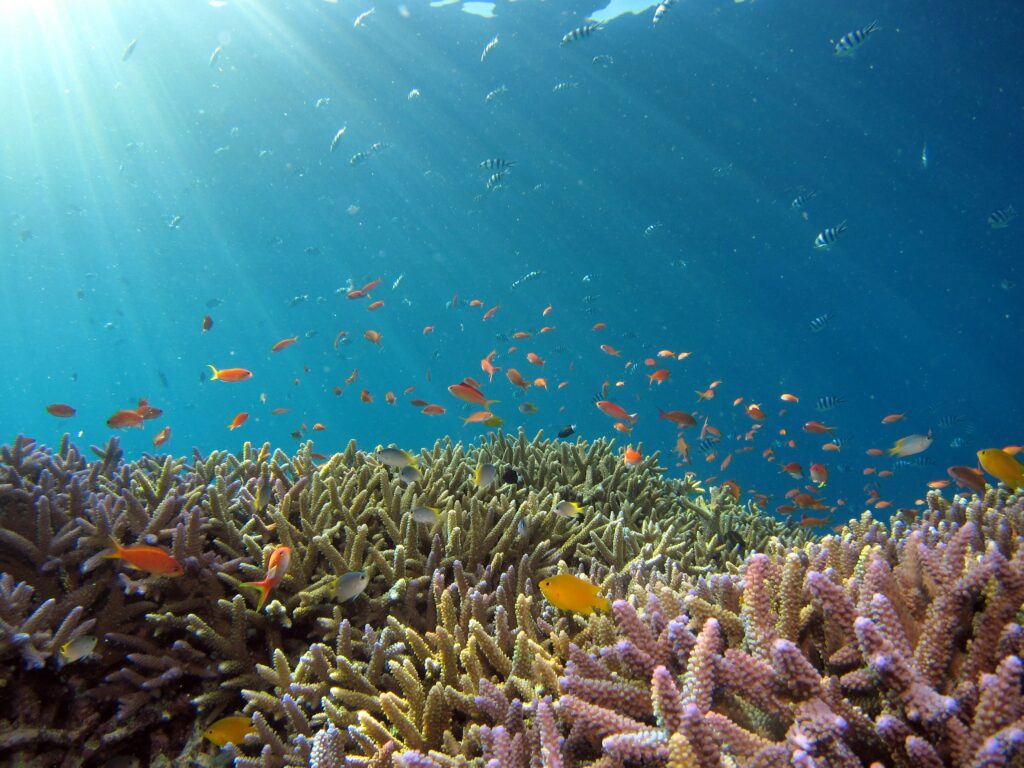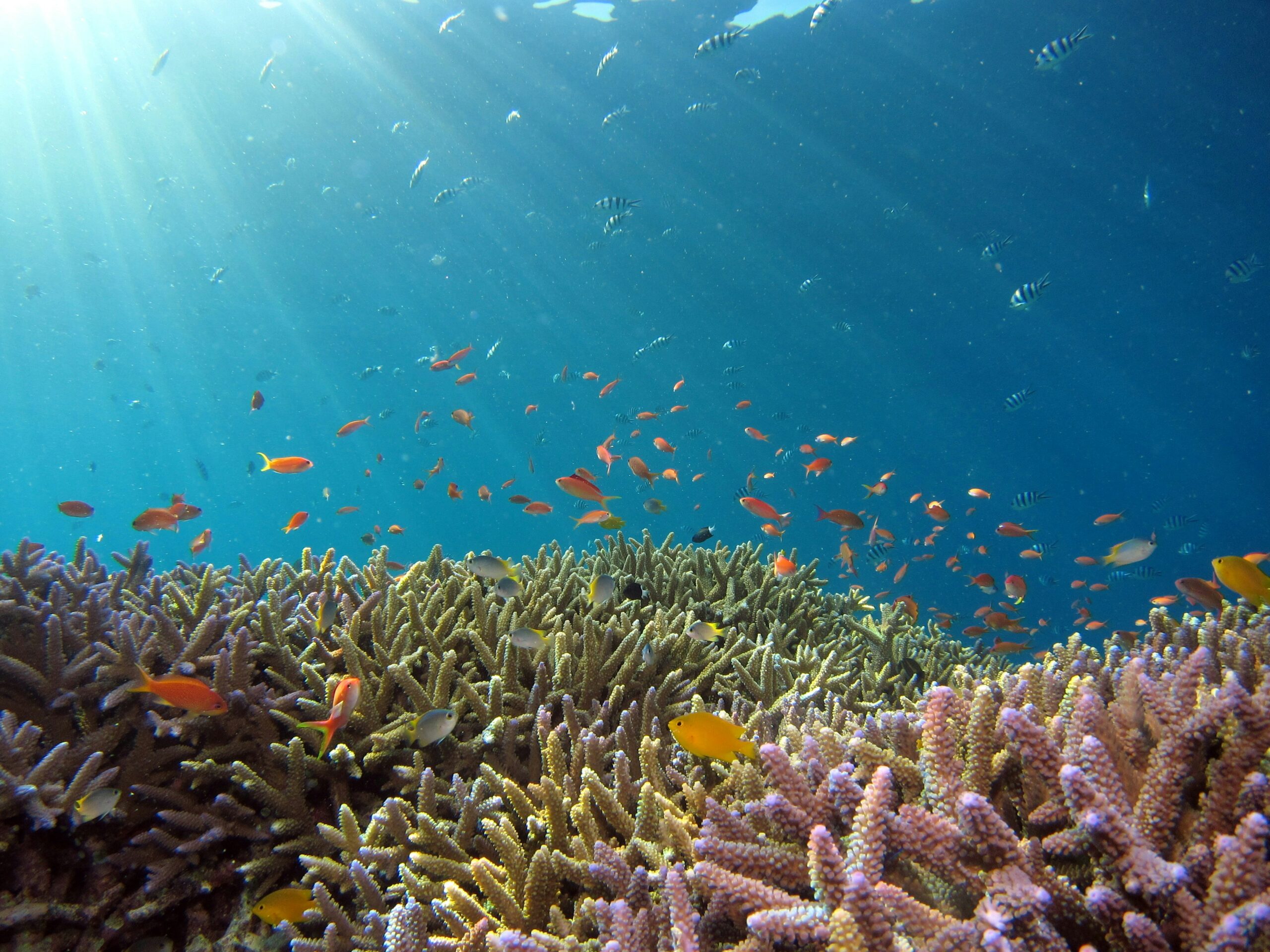Edit:
Hold on, I think this idea needs A LOT more polish. I will come back to this soon (hopefully) I also need to add key idea (spoilers): you’re also a fish.
Introduction
Recently, I’ve started to wonder about makes people different from each other. Oh, by the way, it’s not often that I write about relationships, and for which I also think a more candid tone is more appropriate (read: whatever happens to fall out of my head). We’ve all probably heard the phrase “plenty of fish in the sea” at least once (it’s a rather old proverb). Maybe you’ve heard it, or even used it yourself, trying to console someone who’s just been rejected or broken up, or maybe you’ve heard it while walking by the seafood market—distant yelling from an indignant elderly woman, chequered shopping trolley in tow, demanding to know why the price of fish has gotten so expensive.
But this begs the question: what are fish, then? Are all fish equal? To someone who has just lost a partner (or potential partner), this might be less comforting than the speaker intends it to be. After all, so what if there are plenty of fish? Not all of them should cost $30 per kg—sorry, I have a bad habit of typing whatever I hear in the background—the point is: so what if half of the world are the opposite gender? To take a quote from one of my favourite movies of all time (translated as best as I could):
[pauses, exasperated]Half the world is female? What’s the point? They’re not you.”Hwang Woo Yeon: On Your Wedding Day
Not everyone is the same
What are fish, then? For anyone who has recently experienced heartbreak, it’s likely trivial to believe that not all fish in the sea are the same. Is equating the fish they have lost to every other fish in the sea a fair evaluation of their situation? I think it implies that they have not only lost nothing of significance, which can felt as invalidating and dismissive, it also implies that their reaction is unwarranted, as if they became needlessly depressed over dropping a grain of rice on the ground. “Plenty of grains in your bowl of rice”, perhaps, but that’s only if every grain were the same. Trying to comfort someone who found and lost a legendary Kraken in the sea by telling them that there are plenty of fish in the sea would seem absurd. They might immediately, (and perhaps correctly) realise, like Hwang Woo Yeon, that fish are not Kraken.
But this way of thinking is quite limiting. After all, believing that there is literally no other option in the world would very quickly lead to being stuck, but on the contrary, believing that literally everyone else in the world is also an equal option would be striking far from reality. How often do you meet someone you really feel you can connect with? How often do you see someone so beautiful you feel like you’ve lost control of your ocular functions? To say that everyone is equal would dismiss the reality of finding someone special. Granted, we have natural psychological tendencies that steer us towards believing the object of our affection is more special than they actually are, but that in itself is not enough to dismiss the reality that people are different from each other.
Therefore, I’ve come up with a way to try and categorise the fish in the sea. Please take this in a semi-lighthearted manner, as taking it too seriously would take all the fun out of it. I guess I do also want to compete with the simplistic but common practice of rating people on a scale of 1-10 as I’ve found it unsatisfying.

The spice of adventure
What if we made things more interesting by introducing RPG (Role-Playing Games) elements? In this game, we are a character, and everyone else is fish. Fishes come in many rarities. You have common, uncommon, rare, and legendary fish. Every fish comes with their own traits. Depending on your character, some of these traits are good for you, some are bad, and some are neutral. An Assassin character would hop away from a trait that reduces agility by 50% in exchange for a 200% health increase, but a Tank would absolutely love it; A Mage would be very unimpressed by a trait that halves their Intelligence while doubling their Strength, whereas a Warrior would become significantly more powerful with it.
Fish in this game are more like companions, but they come with traits, and these traits affect your character. The more time you stay with a fish, the higher their stats get, and the more powerful their traits become (for simplicity. I know people can change in behaviour, but their more innate traits tend to persist). But none of that matters, after all, we’re just fishing. What happens to the fish as time passes is anybody’s guess. It’s important to emphasise, again, that every character is different. Remember, not all traits are good for every character, and every fish comes with a unique set of traits. You cannot simply swap one trait for another trait without completely rerolling the dice and swapping everything else. There are a lot of traits, and your chances of finding exactly what you want is improbable to none.
Also, in this game, you cannot tell what all the traits of a fish are until you spend more time with them (you can make educated guesses, but will never be able to know for sure until they are revealed). The rarer the fish, the more extreme their traits will be, and the more traits they may end up having. Once you choose a fish, you cannot change it without going through a typically arduous process that varies in duration and difficulty, so choose wisely. Also, fishes have feelings.
So what are the types of fish?
Common (Green)
Common fish are plentiful and found almost everywhere. If you closed your eyes and randomly pointed towards fish in the sea, chances are you’ll find yourself pointing straight at a common. Common fish contain little surprises, having the least unknown traits to discover, and having the least game-changing effects, which can be a huge relief for most wishing to just enjoy the game without worrying too much about their fish. And many of them can look pretty good too. Over time, you may find yourself adopting the Rifleman’s creed: “This is my fish. There are many like it, but this one is mine.”
Rare (Blue)
Rare fish are harder to find and harder to catch. They’re hard enough to find that they don’t appear everywhere, but they’re not so hard to find that it becomes a downside in and of itself—you can get something special that you can actually find. Traits are still relatively stable, but start to have a noticeable impact on your character, both in positive and negative ways. If you find a fish with traits that are good for your character, you will be quite happy, but if the traits are bad for your character, you’re still okay! Nothing you can’t handle.
Epic (Purple)
Epic fish are hard to find and much harder to catch. It can be weeks to months in-between seeing one, and even then you probably won’t catch it. Their rarity and difficulty in and of itself becomes a significant downside. If you find one and you’re not sure about it, or you don’t like how it looks, it may be quite some time before you find another one. Fish in this category also tend to be really good-looking. You can spend hours just staring at one of these fishes, if you’re so inclined. So much that even if you don’t like the traits you initially see, you may be tempted to gamble on the rest of the traits being good by choosing the fish anyway and seeing how things go. Stories of both great joy and grief come from those who have decided to make that gamble, but if that kind of risk is not your thing, it may be better to find one with traits you know you already like from the start, though it will be daunting fishing just for them unless you are extremely confident in both your luck and your fishing skills.
Legendary (Orange)
Don’t even bother looking for these fish. Most people go their entire lives without seeing one, and nobody knows what it takes to catch them. Sometimes, they happily swim into your net, and other times, it’s like trying to fish up a blue whale with nothing but two hands and a fishing rod. Just being able to witness one in and of itself feels like an accomplishment. They are the most extreme in variation and follow no convention. For every particular fish, nobody can agree if is the ugliest or the most beautiful thing they’ve ever seen. They are so unique that calling them fish makes one question their vocabulary. If you see one, be happy; if you catch one, check if you’re dreaming. If you’re new to fishing and it swims into your net, and you let it go because you thought it was a common fish, you’re an idiot. These fish don’t follow the conventional rules. They can have extremely powerful traits with no mitigating factor. Having a legendary fish as a companion is an experience like no other, and the only appropriate response to being told that there are “plenty of fish in the sea” after losing one is ironic, condescending laughter.
Fish? People?
So, is this a more interesting way of viewing people? What would you want? I personally cannot decide. The world is complicated, and our tendency to gamble is strong. How do we choose? Should we all just try for a legendary fish even though we know it’s unrealistic? Or should we learn to be content with the ordinary and just go for people who are nice to be around? Is there a certain social prestige to having an epic fish as a companion? Or does it risk externalising your sense of self-worth too much? Are rare fishes the best because you get the best of both worlds—a healthy balance of both social prestige and relationship satisfaction? Granted, you can get that with Epic fishes too, it’s just harder.
And what happens if you lose a legendary fish? Would it have been better to never have had one to begin with? At least you can live the rest of your life believing they are out of reach, like the many celebrities we as a world like to fancy. How would you console someone who has lost a legendary fish? Or are they doomed to remember that experience forever, grateful they at least had a chance to get close?


I let a legendary fish go once. I still think about her every day, like the alphabet from A to Z.